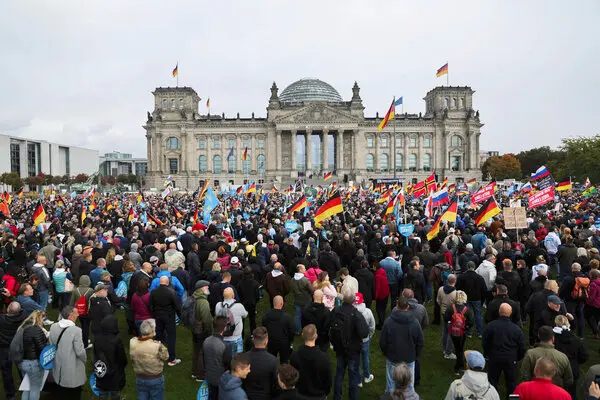The world is experiencing an unprecedented crisis of democracy. Democratic institutions in Europe and the US are faltering, and in developing countries, societies are beginning to question whether building democracy is the right path, writes Simon Tisdall, an international affairs commentator, for The Guardian.
“This ugly rush to extremes is a vote of no confidence in the democratic system itself,” Tisdall writes, noting that even in the US, once a "house of democracy," US President Donald Trump increasingly resembles a dictator rather than a democratic president.
Loss of trust and polarization
Across Europe, in the UK and the US, distrust and grievances deepen political dysfunction and social divisions daily.
"Belief that democracy is the form of governance best suited to the modern world is dwindling, especially among younger people,” Tisdall notes.
Tisdall cites France, where permanent political crises are fueled by sharp polarization between left and right. But France is not alone: far-right and populist forces are gaining ground across Europe, from Britain to the Czech Republic, amid declining trust in moderate politicians.
Populism beyond the West
Faith in democracy is also eroding outside wealthy Western nations. From Morocco to Bangladesh, Indonesia to Kenya, people are weary of poverty, corruption, and the lack of real alternatives to incumbent governments.
“This is the fundamental challenge each faces: democracy isn’t working, or it is working so badly it risks being jettisoned,” Tisdall writes.
He argues that a global struggle is underway over whether democracy will survive as an ideology or the world will revert to an era of autocracies. So far, results vary: in Georgia, democracy has faltered; in Moldova, it has held.
Why is democracy losing faith?
According to Tisdall, the critical loss of faith in democratic systems stems from the fact that democracy no longer delivers consistent, tangible progress in quality of life, especially in the West. Instead of hope for a better future, people face inflation, job scarcity, rising wealth inequality, and mass migration.
All of this contributes to a deep and widespread sense of loss among people in democratic countries. Tisdall believes this explains the rise of populists, who promise to bring back the “good old days.”
Russia suspected of funneling funds to Germany’s AfD party for pro-Russian messaging




